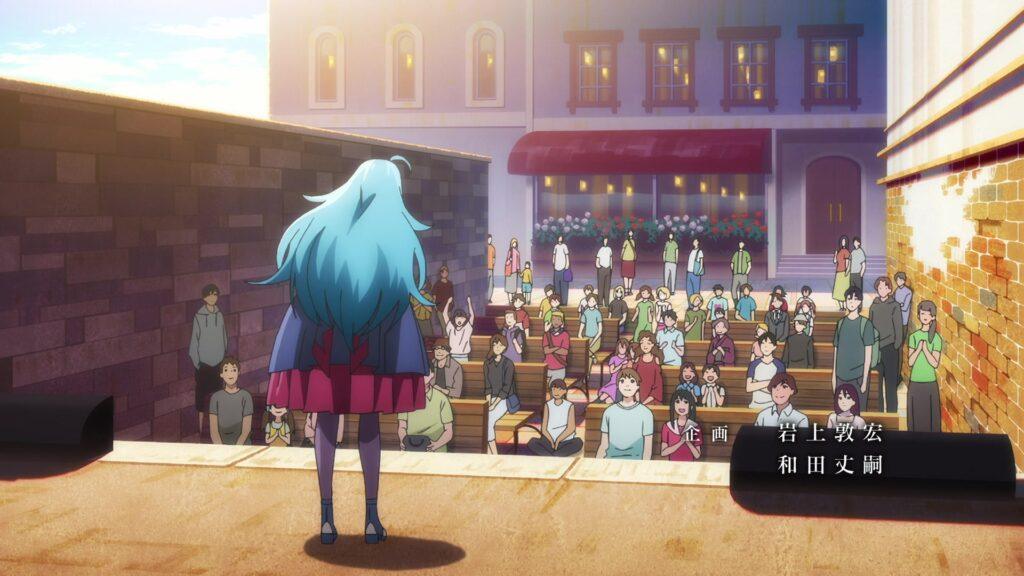In a future where artificial intelligence is a normal part of daily life, Vivy: Fluorite Eye’s Song stands out by asking a question most anime shy away from: what if a machine could dream not of power, but of purpose? This 2021 anime, produced by Wit Studio, combines science fiction, action, philosophy, and emotion in a beautifully animated tale that challenges the very notion of humanity.
At the center is Vivy, the world’s first autonomous humanoid AI, whose only mission is to “make people happy with her singing.” But her quiet stage life is interrupted by a visitor from the future — an AI named Matsumoto — who tells her that in 100 years, AIs will start a war that ends with the destruction of humanity. And together, they must change that fate.

The 100-Year Mission – Rewriting the Timeline, One Choice at a Time
Matsumoto’s arrival launches Vivy into a sprawling journey across decades, where she must intervene at key points in history to change humanity’s grim future. Each arc in the series jumps forward several years, showing how the duo must deal with complex moral choices, unstable political situations, and evolving AI behavior.
Unlike many time-travel narratives, Vivy’s story doesn’t focus on flashy paradoxes or cliché sci-fi tropes. Instead, it’s deeply grounded in consequence. Every action she takes to “fix” the future has a ripple effect. Sometimes they succeed. Other times, they fail. And with each mission, Vivy begins to struggle with her own identity. She’s no longer just a machine fulfilling orders — she’s becoming something more.
The anime beautifully captures this through both story and animation. Whether she’s stopping a rogue AI from a political assassination or singing in front of a crumbling stage, the weight of her journey is always present.
Vivy’s Growth – What Makes a Machine Human?
As the years pass, Vivy’s character subtly transforms. She begins to carry emotional scars. She remembers faces, regrets, and promises. She sings not because she’s programmed to, but because she begins to understand why music matters. She starts asking questions no AI should: What is my purpose? Why do I exist? Am I more than my mission?
These questions are explored with remarkable depth. Vivy is surrounded by other AIs, some who embrace humanity, others who reject it. But Vivy remains somewhere in between. She doesn’t want power or rebellion. She wants to understand. And that journey is what elevates this anime beyond just another sci-fi action series.
By the end of the show, she has made impossible choices, lived through heartbreak, and witnessed the fragile line between humanity and artificial intelligence blur. It’s not just her coding that evolves — it’s her soul.

A Bittersweet Finale – Singing the Song of a Lifetime
The climax of Vivy: Fluorite Eye’s Song is not your typical end-of-the-world scenario. It’s more intimate, more emotional. Vivy, who once stood quietly in the corner of a futuristic stage, now must carry the entire weight of the future on her voice. She performs the “song of her heart,” an original piece she wrote not from data, but from experience — love, grief, sacrifice.
Her final performance is both her salvation and her goodbye. It symbolizes how far she’s come — not as an AI, but as an individual. The ending leaves just enough ambiguity to stir deep reflection. Was it enough? Did she change the world? Or did the world change her?
No matter the answer, Vivy: Fluorite Eye’s Song remains one of the most unique, emotional, and visually stunning anime of the last decade. It’s a tale that will resonate with anyone who’s ever asked: What does it mean to find your own voice?



